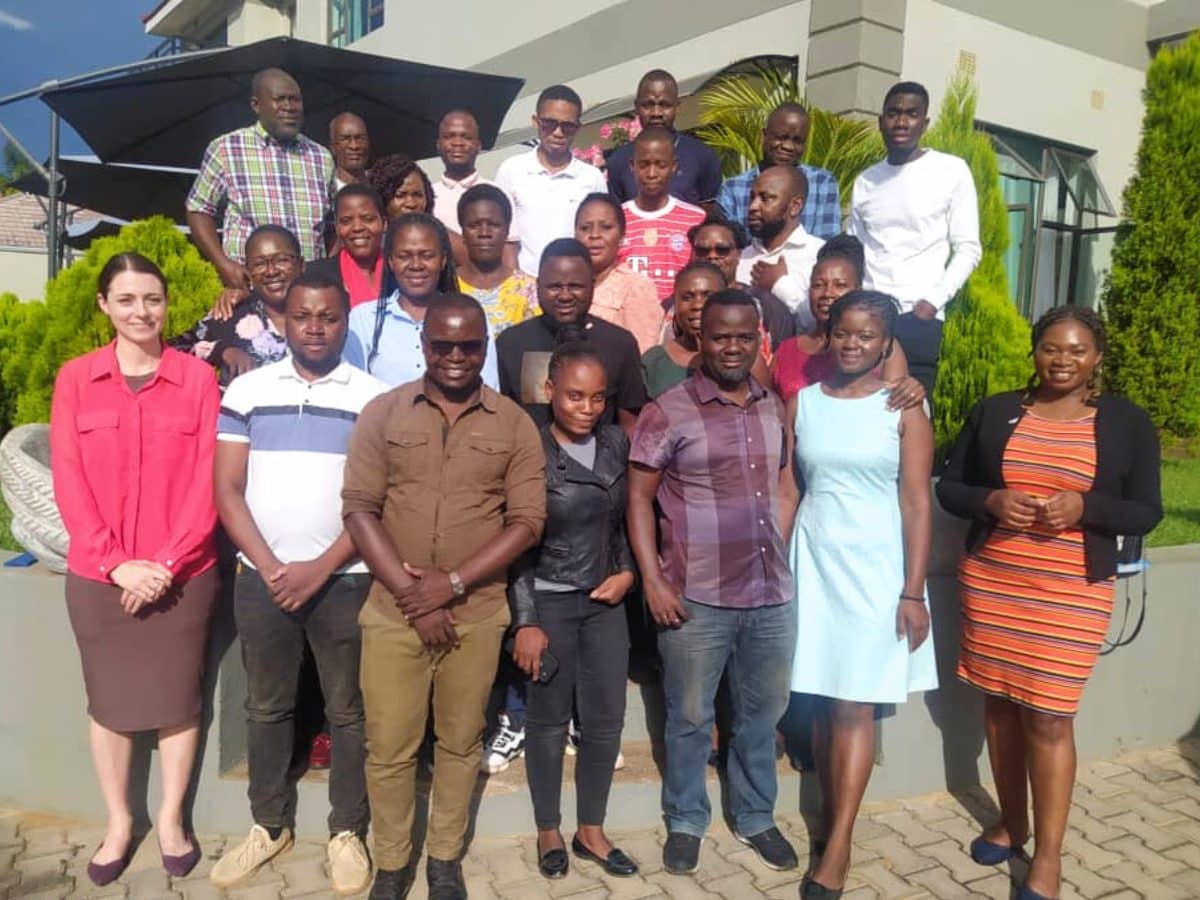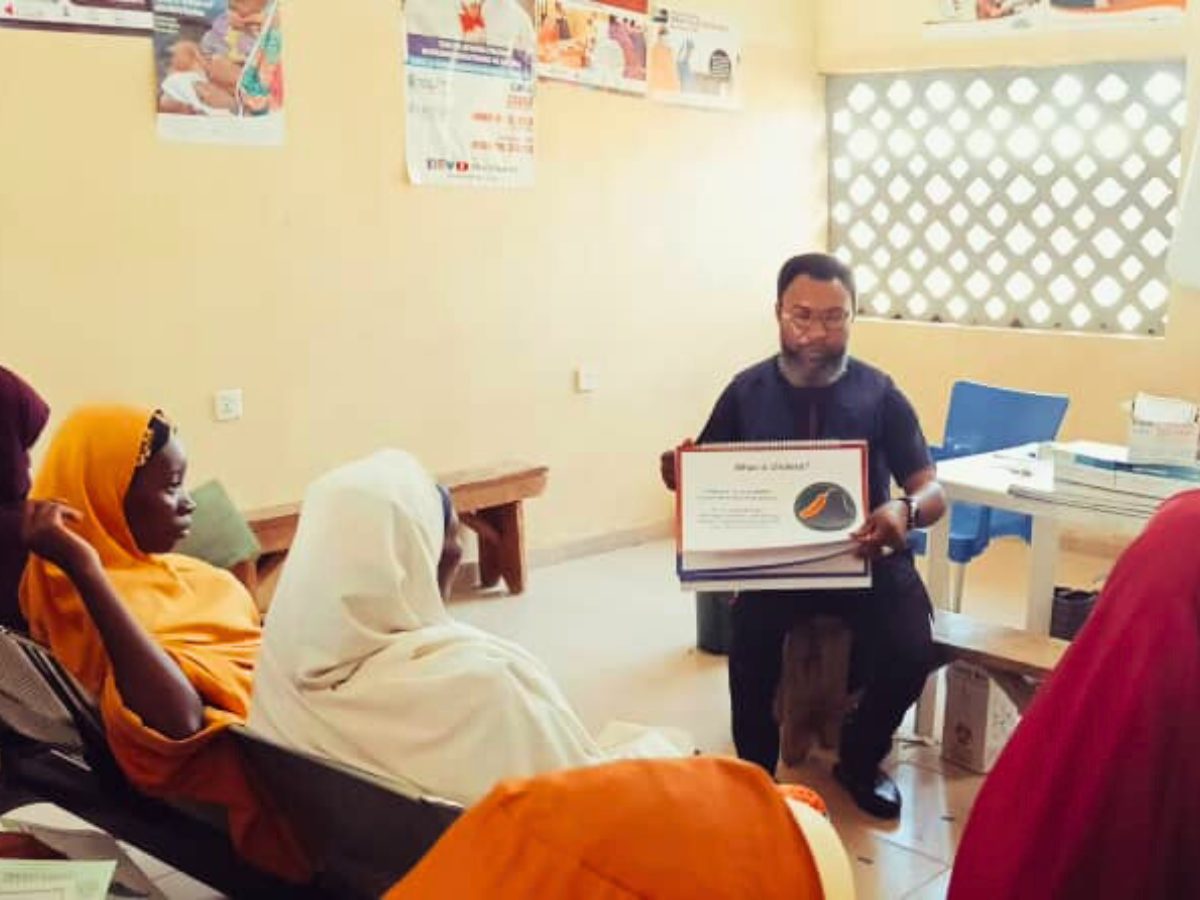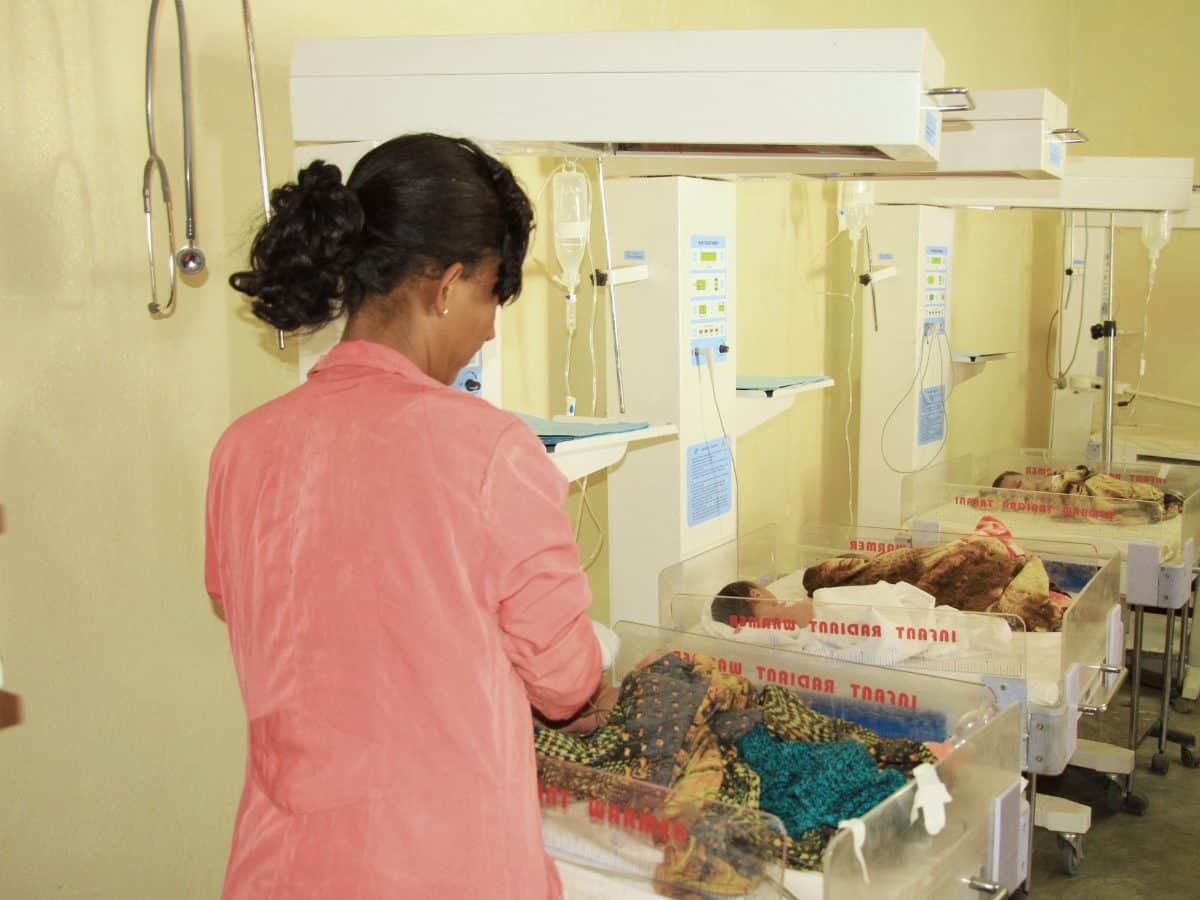In 2023, ICAP implemented a novel approach to conducting biobehavioral surveys among key populations (KP) in Malawi by engaging key populations in the planning of survey activities. Now in the launch phase of these surveys, key populations continue to be at the forefront of survey implementation, leading data collection sensitivity training informed by their lived experiences.
The Malawi biobehavioral surveys, supported by the U.S. President’s Emergency Plan for AIDS Relief (PEPFAR) through the U.S. Centers for Control and Prevention (CDC), will assess HIV, syphilis, and Hepatitis B prevalence, as well as HIV viral load suppression among four groups of key populations, including men who have sex with men (MSM), transgender women (TGW), female sex workers (FSW), and people who inject drugs (PWID). The biobehavioral surveys among PWID and TGW will be the first of their kind in Malawi.
ICAP and the Malawi National AIDS Commission (NAC) established a Community Advisory Board (CAB) of key population groups at the early stages of survey development to ensure survey design was responsive to community interests as well as to foster trust with local key population members. This community-based approach engages community partners and stakeholders throughout all levels of survey design and implementation, ultimately enhancing the survey’s reach and relevance by front-lining key population community expertise. Collaboration with stakeholders such as the CAB, for example, can improve study design by developing recruitment and retention strategies that are acceptable to the community being surveyed, and support accuracy within the data interpretation phase, providing insight into what findings mean within their contexts and identifying potential implications.
A February 2024 data collection training led by NAC in collaboration with ICAP, CAB members, and other key population civil society organizations as facilitators, aimed to demonstrate to data collectors how to manage community-responsive focus group discussions and in-depth interviews. These different types of interviews will yield a clearer picture of the country’s trajectory towards the UNAIDS 95-95-95 targets, exploring such topics as participant satisfaction with health services, barriers to HIV and reproductive health services, and differentiated health service preferences. Given that many key populations continue to face stigma and discrimination in their communities, training data collectors – with input from the very communities that will be surveyed – on how to maintain trust, sensitivity, and safety with survey participants could prove critical to successful data collection.
Trainers, many of whom are key population community members, covered such topics as gender identity, gender expression, sexual orientation, biological sex, and pronouns. In one of the training panels entitled “KP Talk,” FSW, MSM, TGW, and PWID community members shared their personal stories — of learning more about who they are, family relationships, and stigma and discrimination they have experienced — to emphasize the importance of considering the unique lived experiences of key populations when implementing the surveys. Following this panel, key population members acted as clients in role-play exercises, providing instructive feedback to trainees on their communication style.
“We are able to have our views included in the study design and implementation,” said a CAB member from Blantyre, Malawi, speaking to the value of the community-based survey approach. “This allows the views of members on the ground to be included and for the researchers to have a correct picture of the community, which will result in the success of the study.”
“Successful surveys require a deep understanding of the rights and needs of the intended beneficiaries,” said Neena Philip, PhD, MPH, ICAP technical specialist and co-principal investigator of the surveys. “For the Malawi biobehavioral surveys, this has only been possible through meaningful collaboration with the CAB and affiliated key population organizations.”
After completion of focus group discussions and in-depth interviews, ICAP will work closely with CAB members to lead interpretation of discussion and interview data and to identify preliminary recommendations and action points. This will strengthen key population CAB members’ abilities to translate community-based data to program design and policy and serve as a primer for continued interpretation of the behavioral surveys planned for mid-2024.
“The CAB members’ participation in data interpretation,” added Lyson Tenthani, PhD, MPH, country representative for ICAP in Malawi and survey project director, “will significantly enhance acceptability and utility of survey results over the long-term.”
About ICAP
A major global health organization that has been improving public health in countries around the world for two decades, ICAP works to transform the health of populations through innovation, science, and global collaboration. Based at Columbia Mailman School of Public Health, ICAP has projects in more than 40 countries, working side-by-side with ministries of health and local governmental, non-governmental, academic, and community partners to confront some of the world’s greatest health challenges. Through evidence-informed programs, meaningful research, tailored technical assistance, effective training and education programs, and rigorous surveillance to measure and evaluate the impact of public health interventions, ICAP aims to realize a global vision of healthy people, empowered communities, and thriving societies. Online at icap.columbia.edu








